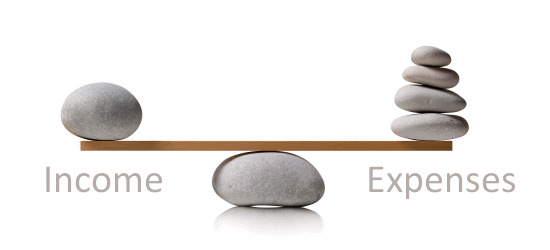Now that Labor Day has passed, and the Fall season is on the horizon, Advantage Management and its property managers have been working on your Association Budgets for 2021. As required by your Associations By-laws, Associations are to prepare an Annual Budget. The Annual Budget requires considerable effort and is a financial plan for the upcoming year and beyond.
The budget is the guideline by which an Association’s results of operations are measured. If actual expenses approximate those budgeted, it is perceived that the budget was well thought-out, and the financial management of the Association was effective. Always keep in mind however that a budget is a projection and sometimes Association’s experience unplanned expenditures. Advantage’s goal is to ensure your actual Association expenses are as close to your budgeted numbers as possible.
All of our property managers have been preparing the preliminary draft of the budget and will be working with your boards for review and ultimate adoption.
The preparation of the budget generally begins by analyzing the year-to-date results of operations, in which the recurring expenses serve as a basis for the new budget year. Factor OUT current year non-recurring expenses; factor IN expenses anticipated for next year, such as special projects, which means that you may have to look ahead as much as 1 ½ years if a project is expected to commence in the latter stages of the following year.
Part of your budget is to help you prepare for the future by building the Association’s reserve fund. The Association’s reserve fund is a savings vehicle to allow the Association to have the funds available for future projects like roofs, masonry projects, elevator upgrades or any large project. Advantage Management makes sure each and every budget is prepared with a sufficient amount of money being transferred to reserves. Not only is this to ensure the financial health of your Association but also shows lenders for sales and re-financing’s that your Association is on the right financial path. Another major reason to have a healthy reserve is to have funds available for projects which helps Associations avoid special assessments.
Here are some other guidelines we consider when preparing the Association’s budget:
- For contractual expenses, read the related contracts to identify any escalators that are anticipated in the following year.
- Contact your insurance agent as early as possible to determine insurance premiums.
- Anticipate estimated costs for non-contractual expenses such as general repairs and maintenance, certain administrative expenses, trash removal, and utilities.
- If loan repayments will be required, include the entire payment amount (i.e., principal and interest) in the budget.
There are other concepts we keep in mind in preparing the annual budget: Be realistic. It is generally difficult to keep maintenance assessments at last year’s levels. The role of an Association’s Board is to run the Association’s business. The Board has a fiduciary duty to review and pass a budget that keeps the Association in good financial standing.
In the coming weeks you should see notices for a board meeting to review the upcoming 2021 budget. Once the budget has been reviewed it will be sent at least 25 days in advance of an open meeting were the budget will be adopted. The budgeting process doesn’t end with the adoption of the annual budget. Careful and routine monitoring of budget-to-actual results of operations is a vital part of the effective management of a community association.
Please feel free to reach out to your property manager for any questions about your budget and the budget passing process.


Recent Comments